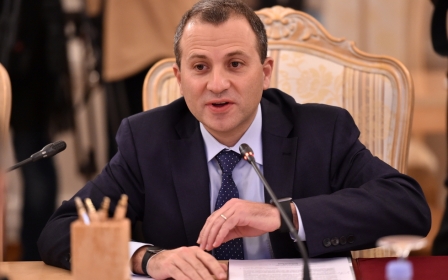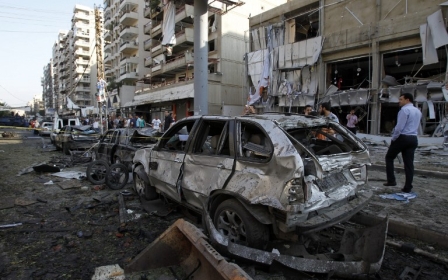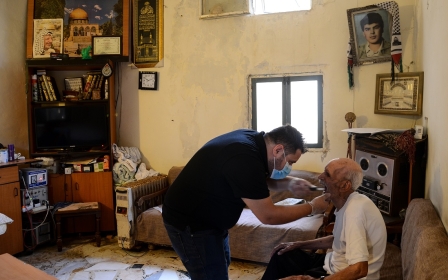Arrest of 'IS emir' in Lebanon led to foiling bomb plot, security officials say

The arrest of an Islamic State (IS) group commander in Lebanon led to foiling coordinated bomb attacks across the country, Lebanese media outlets reported, citing security officials.
According to daily newspaper Assafir, “IS Emir” Imad Yassin confessed to an “unprecedented terrorist plot” that would have targeted security forces, power stations, crowded restaurants, the central bank and United Nations peacekeeping forces.
Assafir also reported that Yassin had direct correspondence with IS leaders in Raqqa, the de facto capital of the militants in Syria.
Yassin was nabbed by the Lebanese army on Thursday from the Palestinian refugee camp of Ain al-Hilweh.
He is a Lebanese-born Palestinian national who has joined various militant organisations over the past years, Elnashra news website reported.
Lebanon’s army chief Jean Kahwagi said the arrest saved many lives and spared Lebanon numerous bombings that Yassin and his accomplices were planning.
Kahwagi was speaking at an army base in south Lebanon.
"The security situation [in Lebanon] is under control as the army has all the capabilities to confront terrorism and maintain national stability despite the surrounding circumstances," he was quoted as saying by the Daily Start.
Several media reports said security forces are on high alert and searching for the remnants of Yassin’s network.
Lebanon has been targeted repeatedly by militant organisations since 2013, as it struggles to contain the spillover from the war in neighboring Syria. In November 2015, two IS suicide bombings claimed as many as 43 people in south Beirut.
Lebanon’s Hezbollah is fighting alongside government troops in Syria, and the Lebanese army regularly clashes with militants on the Syrian border.
New MEE newsletter: Jerusalem Dispatch
Sign up to get the latest insights and analysis on Israel-Palestine, alongside Turkey Unpacked and other MEE newsletters
Middle East Eye delivers independent and unrivalled coverage and analysis of the Middle East, North Africa and beyond. To learn more about republishing this content and the associated fees, please fill out this form. More about MEE can be found here.




